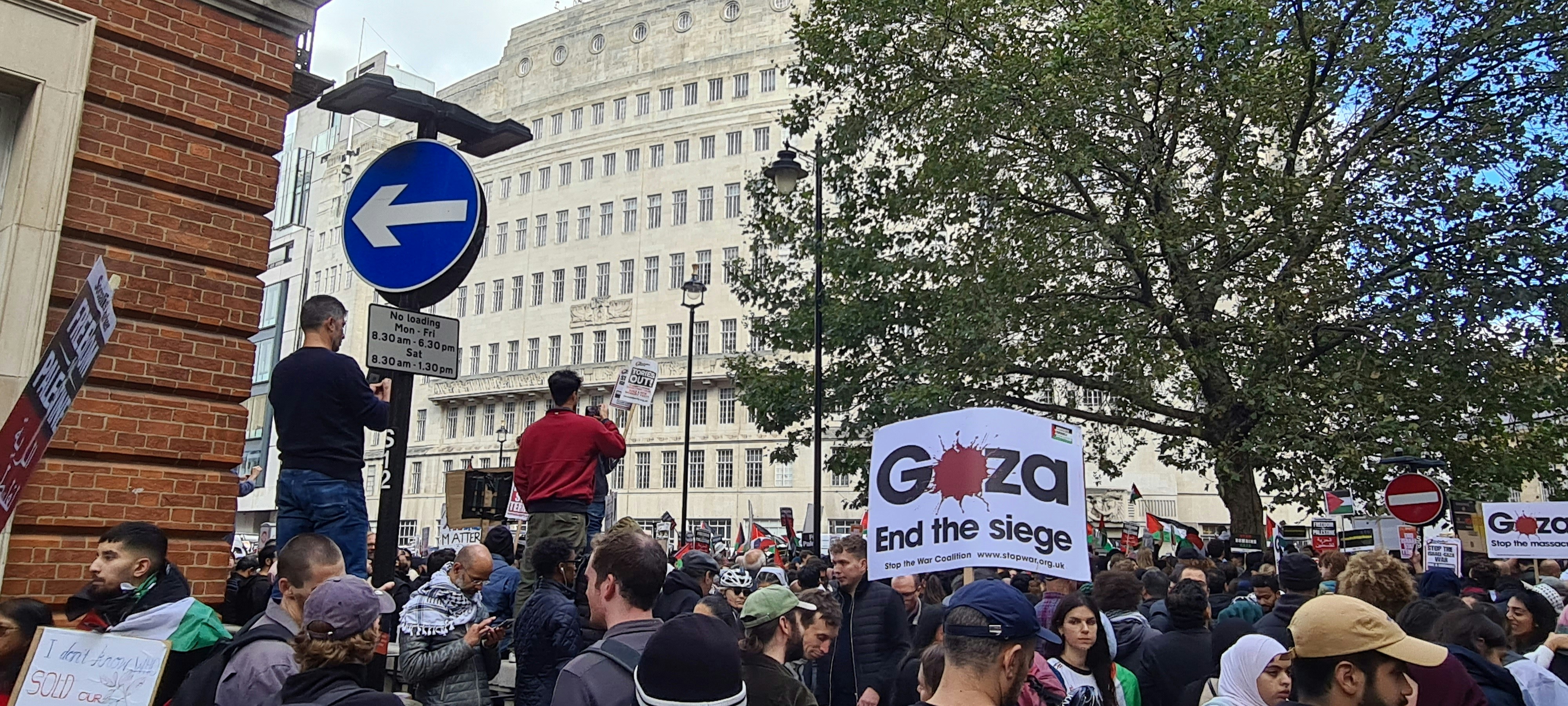
Understanding the Situation in Gaza
The Gaza Strip, a narrow piece of land located along the Mediterranean coast, is home to approximately two million Palestinians. This densely populated region faces a multitude of challenges that stem from a complex combination of political, social, and economic factors. The longstanding Israeli-Palestinian conflict significantly contributes to the current situation in Gaza, leading to heightened tensions and ongoing violence that have profound implications for the daily lives of its residents.
One of the most pressing issues currently plaguing Gaza is the humanitarian crisis. Continuous conflicts and military operations have devastated infrastructure and restricted access to essential services. Hospitals and clinics struggle to function under the strain of limited medical supplies, making it difficult for them to provide adequate healthcare to those in need. Furthermore, the blockade imposed by Israel has severely restricted the flow of goods and resources, resulting in shortages of food, clean water, electricity, and other crucial necessities. These restrictions hinder the ability of organizations to deliver aid and exacerbate the living conditions for the residents of Gaza.
Additionally, the economic situation in Gaza is dire. Unemployment rates are extraordinarily high, particularly among youth, where they reach alarming levels. The limited opportunities for employment and economic growth have fostered a reliance on humanitarian assistance as a primary means of survival. Socially, the population grapples with high levels of stress and trauma, stemming from both the ongoing violence and the uncertainty of daily life in such an environment.
In light of these challenges, it is imperative to understand the intricate dynamics at play in Gaza. Advocacy, awareness, and support for humanitarian aid efforts are essential to address the critical needs of the population. By comprehensively understanding the situation, individuals and organizations can work towards meaningful assistance and solidarity with the people of Gaza. This collective effort is vital in bringing attention to the urgent issues they face and in aiding those affected by this protracted crisis.
Ways to Provide Financial Support
Providing financial support to Gaza is a fundamental means of assistance that can have a significant impact on the lives of those affected by ongoing conflict and humanitarian crises. Various organizations and initiatives have been established to facilitate donations aimed at relieving the suffering of the Gazan population. This section aims to guide readers through trustworthy NGOs and charitable foundations that are actively working towards this noble cause.
One notable organization is the Palestinian Red Crescent Society, which plays a crucial role in providing medical and humanitarian assistance. Donations to this organization can be made through their official website and are used to support health services and emergency responses in Gaza. Additionally, organizations such as UNRWA (the United Nations Relief and Works Agency for Palestine Refugees) are vital for providing education, health care, and social services to Palestinian refugees. Financial contributions to UNRWA can help ensure that these essential services continue to be available.
Another impactful initiative is Islamic Relief Worldwide, which offers humanitarian aid and development programs in Gaza. Their operational transparency and commitment to accountability make them a reliable option for donors who wish to contribute meaningfully. When considering how to donate safely, online platforms through secure encrypted payment methods are recommended. Be wary of unsolicited requests for donations, and always donate directly through established and well-recognized organizations.
It is essential to research these organizations to confirm their credibility and ensure that funds are utilized effectively. Transparency is a vital aspect of financial contributions; thus, supporting initiatives that provide regular updates on their projects can increase donor confidence. Engaging in financial support not only provides immediate relief but also promotes long-term development in Gaza.
Volunteering and Advocacy Opportunities
Volunteering and advocacy play crucial roles in supporting Gaza during its time of need. Individuals interested in making a tangible difference can find numerous opportunities, both on the ground and remotely, empowering them to raise awareness and contribute their skills effectively. One of the primary ways to get involved is through local and international non-governmental organizations (NGOs) that focus on the humanitarian situation in Gaza. These NGOs often seek volunteers for various roles, including fundraising, graphic design, social media management, and event coordination.
For those unable to travel, remote volunteering offers a flexible option to advocate for Gaza. Many organizations conduct online campaigns that require help with crafting messages, sharing information on social media platforms, and organizing virtual events. Skills in communication, writing, and technical support can be leveraged to amplify the voices of those in Gaza, ensuring that their stories and needs reach a broader audience.
Participating in awareness-raising events is another impactful way to foster solidarity. This may include organizing educational workshops, panel discussions, or community gatherings that aim to inform the public about the challenges faced by individuals in Gaza. Collaborating with local organizations can lead to collective events that draw attention to humanitarian efforts and encourage community engagement.
Advocacy extends beyond individual actions; it involves collective voices united for a cause. Joining or forming advocacy groups that focus on Gaza can significantly amplify the effort. These groups often engage in campaigns that address policy changes, lobby government representatives, and promote fair treatment of individuals in affected regions. By working together, volunteers can foster a sense of solidarity and ensure that the plight of Gaza is not forgotten.
Ultimately, whether through on-the-ground initiatives or virtual engagements, every action counts. Contribution of time and skills can help raise awareness, support humanitarian efforts, and promote lasting change for the people of Gaza. Together, we can build a strong network of support and advocacy that uplifts those in need.
Raising Awareness and Spreading the Word
Raising awareness about the situation in Gaza is essential for fostering support and solidarity. One of the most effective methods to achieve this is through social media campaigns. Platforms such as Twitter, Facebook, and Instagram are invaluable in reaching a broader audience, allowing individuals and organizations to share information, photographs, and testimonials that humanize the plight of those affected. Creating shareable content, such as infographics, short videos, and personal narratives, can significantly engage users and motivate them to spread the message further.
Additionally, hosting informational webinars serves as another powerful strategy. These events can feature experts on Middle Eastern politics, humanitarian aid workers, and voices from Gaza itself. Through these webinars, participants gain insight into the complexities of the crisis and the ongoing humanitarian needs. By emphasizing the historical context and current circumstances, these sessions can foster a deeper understanding among attendees and boost their capacity to advocate for change.
Community discussions also play a pivotal role in raising awareness. Organizing local gatherings or online forums where individuals can come together to share their concerns can lead to meaningful dialogues. By encouraging open discourse about the impact of the situation in Gaza, participants can learn from one another and explore ways to take collective action. Engaging friends and family in conversations about Gaza can help to normalize the discussion surrounding this humanitarian crisis, allowing more people to grasp the severity of the situation.
Lastly, it is crucial to emphasize the importance of cultivating an informed community. Sharing credible resources and directing others to reputable organizations working in the region can significantly amplify their efforts. By mobilizing collective voices and fostering solidarity, awareness about Gaza can grow, paving the way for meaningful advocacy and support.
Supporting Cultural and Educational Initiatives
Cultural and educational initiatives play a pivotal role in empowering communities, particularly in regions facing adversity such as Gaza. These programs serve as platforms for personal and communal development, allowing individuals to acquire essential skills while preserving and promoting their cultural identity. By investing in the arts, education, and social development projects, supporters can contribute to fostering resilience and hope amid challenging circumstances.
One of the primary ways to support these initiatives is through direct funding or donations to organizations that operate in Gaza. Many non-profit organizations focus on providing educational resources, vocational training, and creative workshops that enhance the capabilities of local residents. For instance, contributing to programs that offer scholarships for youth can significantly impact their access to quality education, thus paving the way for brighter futures. Similarly, supporting artistic endeavors helps nurture local talent and promotes cultural expression, allowing individuals to share their stories and experiences through various art forms.
Engaging with local artists and educators is also a meaningful avenue for support. This can involve collaborating on projects, promoting their work on social media, or even purchasing locally produced art and educational materials. By doing so, supporters not only amplify the voices of those within Gaza but also help sustain their livelihoods and foster a sense of community pride.
Furthermore, advocating for cultural and educational initiatives through awareness campaigns or social media outreach can greatly enhance visibility. The more people understand the importance of these programs, the greater the potential for widespread support. Encouraging discussions around the cultural heritage and educational advancements in Gaza highlights the resilience of the community and can attract additional funding or resources.
In conclusion, supporting cultural and educational initiatives in Gaza is crucial for promoting empowerment and preserving identity. By contributing time, resources, or advocacy efforts, individuals can make a meaningful difference and help shape a more hopeful and educated future for the people of Gaza.
Understanding Your Rights and Responsibilities
Engaging in activism to support Gaza is a significant and often noble endeavor; however, it is imperative to be aware of the legal framework that governs such actions. Individuals have the right to advocate for causes they believe in, including those related to Palestine. This advocacy can take various forms, such as peaceful protests, social media campaigns, and community outreach. Understanding these rights is fundamental to effective and responsible activism.
In most democratic societies, individuals are protected under freedom of expression laws, which allow them to voice their opinions on matters related to Gaza and advocate for various forms of support. However, this freedom is often subject to certain limitations. It is essential for activists to familiarize themselves with local laws governing public gatherings, speech, and other forms of expression. These can differ significantly depending on jurisdiction, and violations can lead to unwanted legal repercussions.
When participating in advocacy efforts, it is crucial to conduct research on local regulations and, if necessary, consult legal experts or organizations that specialize in civil rights. Furthermore, it is advisable to remain mindful of the implications of one’s actions. This includes ensuring that demonstrations remain peaceful and that any communications made regarding Gaza are accurate and respectful, avoiding misinformation or inflammatory rhetoric that could escalate tensions.
In addition to focusing on rights, activists should also recognize their responsibilities. Engaging with communities affected by conflict requires sensitivity and respect for diverse viewpoints. Practicing active listening and being open to dialogue is essential in promoting constructive discussions about Gaza. By understanding both rights and responsibilities, individuals can advocate more effectively for Gaza while ensuring compliance with legal frameworks, thereby avoiding potential backlash against their activism.
Engaging with Policymakers and Influencers
Engaging with policymakers and influencers is a crucial element in advocating for the rights and needs of those facing challenges in Gaza. By influencing decision-makers, individuals can help create a more supportive environment for policy changes that address humanitarian issues, while also amplifying the voices of those affected. This involves not only raising awareness about the situation in Gaza but also actively participating in discussions that may lead to tangible support.
One effective approach to engaging policymakers is through the art of letter writing. Expressing concerns in a well-structured letter can effectively communicate the urgency of the situation in Gaza. When drafting a letter, it is important to be clear and concise, providing specific details about the conditions and the urgent need for action. Personal stories or testimonials can be powerful in eliciting an emotional response and fostering empathy among decision-makers.
Additionally, scheduling meetings with local representatives or policymakers can provide an invaluable opportunity for direct dialogue. Such meetings facilitate a more personal connection, allowing advocates the chance to share insights and discuss actionable strategies. Preparing ahead of the meeting—by gathering relevant data and understanding the policymaker’s position—can enhance the impact of the discussion. Follow-up emails summarizing key points can ensure continued engagement and emphasize the importance of ongoing support for Gaza.
Finally, utilizing online platforms and social media can significantly broaden the reach of advocacy efforts. Posting educational content, sharing petitions, or initiating campaigns can mobilize a larger audience and influence public opinion. Engaging with influencers who have established credibility can also amplify these messages, drawing more attention to the needs of Gaza. By combining traditional advocacy methods with contemporary digital strategies, individuals can effectively influence policymakers and drive change. In conclusion, a multifaceted approach that includes letter writing, direct engagement, and online advocacy is vital for supporting Gaza.
The Role of the Diaspora in Supporting Gaza
The Palestinian diaspora plays a crucial role in supporting communities in Gaza, facilitating connections that extend beyond borders. By leveraging various platforms and networks, individuals living outside of Palestine can contribute significantly to the welfare of their families, friends, and fellow citizens in Gaza. This support is increasingly vital given the ongoing challenges faced by those in the region, including economic hardship and lack of access to essential services.
First and foremost, many online platforms have emerged specifically designed to mobilize support for Gaza. These platforms offer a wide range of options for engaging and contributing, from fundraising campaigns to awareness initiatives. Social media networks, for instance, have proven effective in spreading information and highlighting pressing issues, garnering international attention. Many diaspora communities utilize these channels to raise funds for humanitarian aid, medical supplies, and vital resources, enabling them to make a tangible impact in Gaza.
Networking is another critical aspect of the diaspora’s contribution. By forming connections with organizations focused on Palestinian advocacy, individuals can join forces to create more extensive support systems. These partnerships allow for the pooling of resources, knowledge, and skills that can be used to address the needs in Gaza more effectively. Collaborative efforts can include organizing community events to raise awareness or providing logistical support for shipping goods to those in need.
Furthermore, sharing information about the situation in Gaza fosters a sense of solidarity among Palestinians worldwide. Individuals can connect through forums and discussion groups, sharing personal experiences and strategies for supporting their homeland. This exchange of ideas not only strengthens community bonds but also creates a unified voice advocating for justice and assistance for Gaza. Through these various methods, the diaspora can significantly contribute to the welfare and resilience of Palestinian communities back home.
Staying Informed and Updated
To effectively support and advocate for Gaza, it is essential to stay informed about the latest developments in the region. Knowledge equips supporters with the tools necessary to engage in meaningful discussions and raise awareness effectively. An array of reputable news sources, journals, and academic publications can provide real-time updates and in-depth analyses, aiding in the comprehension of the complex issues at play.
Leading news organizations such as The Guardian, Al Jazeera, and BBC News are instrumental in delivering current reports on the situation in Gaza. These outlets not only cover the breaking news but also offer insightful commentary and expert opinions that can clarify the evolving dynamics. Furthermore, subscribing to their newsletters ensures regular updates directly to your inbox, thereby fostering continuous engagement with the topic.
In addition to mainstream media, humanitarian organizations such as Human Rights Watch and Amnesty International produce substantial reports that highlight human rights concerns in Gaza. These organizations often publish articles and research papers that dive deep into specific issues, making them invaluable resources for understanding the broader implications of the crisis. Their analyses can aid supporters in framing their advocacy efforts within a larger context, making discussions more impactful.
Moreover, academic journals such as the Journal of Palestine Studies and Middle East Journal offer scholarly perspectives on Gaza’s socio-political landscape. Engaging with these publications can enhance critical thinking and provide a nuanced understanding of the challenges faced by the people of Gaza. By committing to a routine of reading from these varied sources, advocates can keep both their knowledge and advocacy efforts focused and effective.





